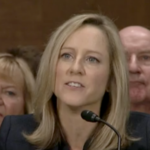The Court of Appeals for the Third Circuit has partially reversed a lower court’s dismissal of a lawsuit against a collection agency which was alleged to have violated the Fair Debt Collection Practices Act by using a different company name in voicemail messages left with individuals.
The plaintiffs had filed a class-action lawsuit alleging violations of three provisions of the FDCPA, which were all dismissed by a District Court judge. However, on appeal, the Third Circuit has opted to revive one of the allegations while affirming the dismissal of the other two.
A copy of the ruling in the case of Levins v. Healthcare Revenue Recovery Group, also known as ARS Account Resolution Services, can be accessed by clicking here.
The plaintiffs incurred a debt which was placed with the defendant for collection. During the course of its efforts to collect, the defendant left a voicemail message for the plaintiffs. The message said:
ARS calling. Please return our call at 1-800-694-3048. ARS is a debt collector. This is an attempt to collect a debt. Any information obtained will be used for that purpose. Again, our number is 1-800-694-3048. Visit us at www.arspayment.com.
The plaintiffs alleged that they received no other communication from the defendant. The defendant had registered the name ARS Account Resolution Services in New Jersey, where the plaintiffs were located, but, allegedly, had not taken any other steps to use the name ARS. The plaintiffs filed a lawsuit, alleging the defendant violated Sections 1692(e)(14), 1692(d)(6), and 1692(e)(10). A District Court judge in New Jersey ruled against the plaintiffs on all three counts and granted a motion to dismiss the lawsuit.
In reviving one portion of the suit, the Appeals Court ruled the plaintiff have stated a plausible claim under 1692(e)(14), which prohibits the use of any business, company, or organization name other than the true name of the debt collector’s business, company, or organization in attempting to collect on a debt.
While the defendant submitted a collection letter it purportedly sent to the defendants which makes the connection between HRRG and ARS, the letter was not referenced as part of the initial complaint — just the voicemails were — and the plaintiffs claimed never to have received the letter. Said the Appeals Court: “Nothing in the information properly before us indicates that ‘ARS’ is HRRG’s full business name, the name under which it usually transacts business, or its commonly used acronym.”
The Appeals Court did uphold the dismissal of the claim alleging violations of 1692(d)(6) — which prohibits the placement of telephone calls without meaningful disclosure of the caller’s identity — because “the voicemail messages provided enough information about the caller’s identity for the least sophisticated debtor to know that the call was from a debt collector and was an attempt to collect a debt.” As well, the Appeals Court upheld the dismissal of the claim alleging a violation of 1692(e)(10) — the use of any false representation or deceptive means to collect or attempt to collect any debt or to obtain information concerning a consumer — because there was nothing “materially deceptive, misleading, or false” in the voicemail message.









